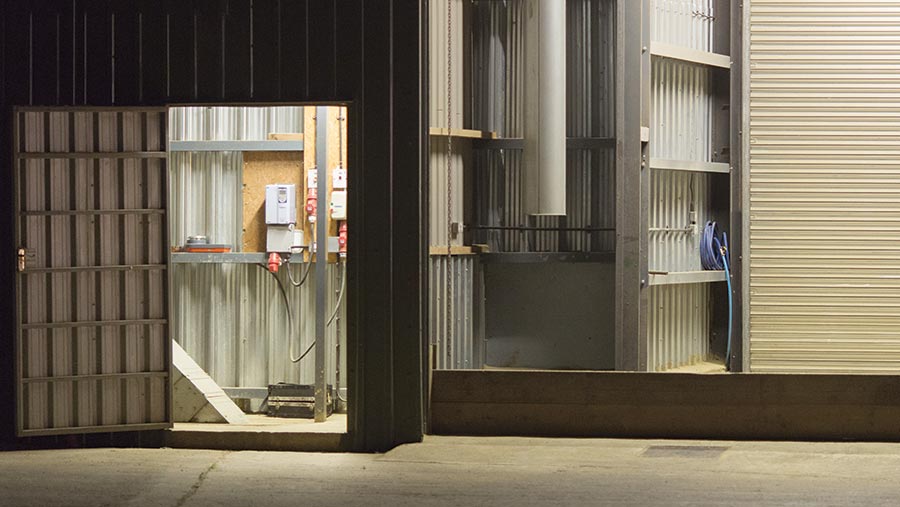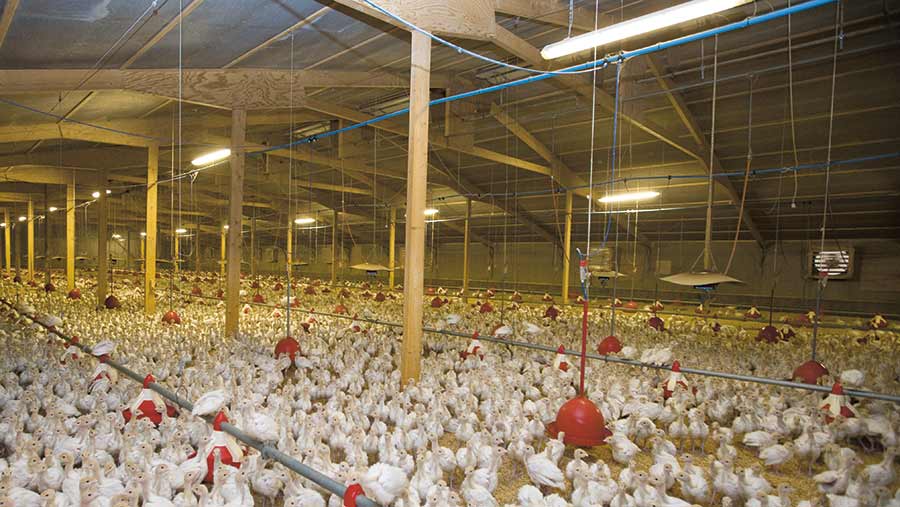How to get the best deal on farm electricity contracts
 © Tim Scrivener
© Tim Scrivener When seeking a new electricity contract, look beyond headline rates and ask for quotes that show the total cost of the contract over its lifetime, warn advisers.
Some farm businesses get caught out by contracts with attractive headline unit rates, without realising the full impact of other charges, according to Steve Bolt, director at cost management consultant BCR Associates.
“The energy market has changed considerably in recent years, making it harder for end users to know clearly what they are buying when signing a new contract,” he says.
See also: Shop around for best contract to cut farm energy bills
“The business energy market is split into two parts – one element, the commodity cost, which is effectively based on the oil price; and an element known as the non-commodity price, which consists of the levies and taxes needed to pay for the infrastructure.”
The non-commodity element currently equates to about 50% of the unit rate, and this is forecast to rise to about 70% by 2022.
“This means that over half your unit costs are costs you can’t control,” says Mr Bolt.
“New legislation has also made it harder for suppliers to forecast the impact of these levies. So suppliers use their terms and conditions to pass through any elements that have not been included in the contract.”
High broiler power costs
A broiler producer from Derbyshire had signed a 36-month contract with his supplier, which at face value seemed to be an excellent deal.
However, the contract did not include some of the non-commodity costs, which means the farmer is paying nearly double the quoted rate for the last 12 months of his contract and 5p/Kwh more than he could get on an alternative contract.
These costs appear as extra lines on the invoice – a sign of what is known as a pass-through contract.

Broiler production © Tim Scrivener
The three types of business contract
- Fully fixed contract This may appear to be the most expensive, but is good for people who want budget certainty.
- Fixed contract Although this term implies that the quoted price is fixed, often only the commodity costs are fixed. This means that the supplier can pass through changes on the non-commodity side, so this could be more expensive than it first seems.
- Pass-through contract This often looks the best value, but often only the commodity costs are quoted. No costs are fixed and therefore all additional costs can be passed back to the farmer, so bills will vary month to month.
Total cost of contract
A recent quote for a business customer made it look like the pass-through contract offered a 50% cost saving. But once Mr Bolt had factored in his projections for non-commodity costs it turned out that signing up for a fully fixed contract could offer a significant saving.
The cheapest unit rate may not be the cheapest overall deal |
|||
|
|
Fully fixed contract (including cost of government levies) |
Pass-through contract (not including cost of government levies) |
Cost of pass-through contract including projections for cost of government levies) |
|
1 year |
£100,506 |
£49,664 |
£103,000 |
|
2 years |
£100,545 |
£48,351 |
£107,000 |
|
3 years |
£101,385 |
£47,519 |
£119,000 |
While there are price comparison websites for the business sector, they are not as helpful as for domestic users, as it is difficult to make a true comparison.
The best approach is to always ask for written quotes, which show the total cost over the lifetime of the contract, says Mr Bolt.
Other costs
Farmers with half-hourly meters also need to bear in mind that the unit costs for electricity in that market are more expensive.
- A meter operator agreement (MOP) will be needed – these typically cost £100-£150/year.
- A data collection charge is added by some suppliers – others may roll this into a standing charge.
- New penalty charges also came into effect on 1 April 2018, affecting those half-hourly meters and those who exceed their ‘maximum import capacity’. Under the DCP161 rule associated with this change, those using more energy than their meter limit will be charged up to three times the unit rate for the excess energy used. Check there Is enough headroom in the capacity limit if you plan to expand or diversify – your electricity usage could change as a result, warns Mr Bolt.
Top tips
- Always get a quote for the total cost of the contract and get the supplier to confirm in writing what this includes
- Ask for full paperwork
- Read the terms and conditions of your contract
- Time of year can have an impact on the cost quoted, so securing a contract in the summer, even if it is for a winter renewal, could save costs
